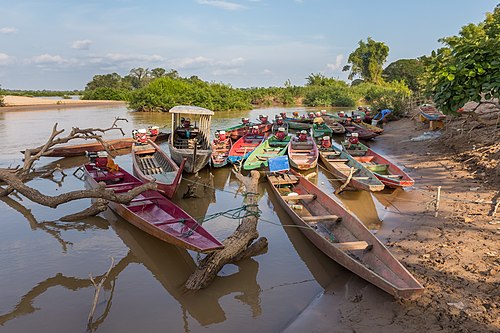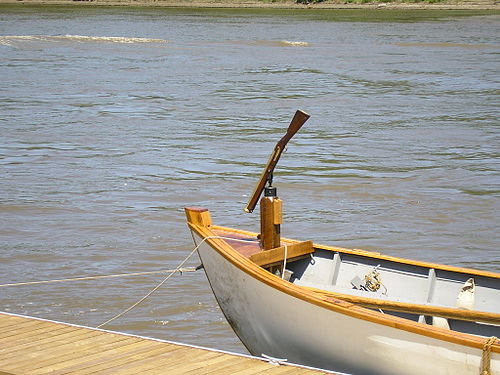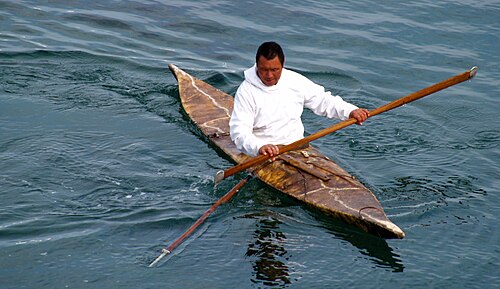Piroguenoun
A canoe of shallow draft, made by hollowing a log.
Piroguenoun
A small flat-bottom boat of shallow draft. Specifically, a flat-bottom boat made out of a four-foot by eight-foot piece of plywood, the bottom being a two-foot eight-inch-wide eight-foot-long pointed-end lengthwise-centered oval cut from the piece, and the boat's sides being the two remaining pieces attached lengthwise to the outside edges of the oval.
Piroguenoun
A style of pasta shaped as a miniature canoe folded over.
Piroguenoun
A dugout canoe; by extension, any small boat.
Piroguenoun
a canoe made by hollowing out and shaping a large log
Pirogue
A pirogue ( or ), also called a piragua or piraga, is any of various small boats, particularly dugouts and native canoes. The word is French and is derived from Spanish piragua [piˈɾaɣwa], which comes from the Carib piraua.
Kayaknoun
A type of small boat, covered over by a surface deck, powered by the occupant or occupants using a double-bladed paddle in a sitting position, from a hole in the surface deck
Kayakverb
(intransitive) To use a kayak, to travel or race in a kayak.
Kayakverb
(transitive) To traverse (a body of water) by kayak.
Kayaknoun
A light canoe, made of skins stretched over a frame, and usually capable of carrying but one person, who sits amidships and uses a double-bladed paddle. It is peculiar to the Eskimos and other Arctic tribes.
Kayaknoun
a small canoe consisting of a light frame made watertight with animal skins; used by Eskimos
Kayakverb
travel in a small canoe;
Kayaknoun
a canoe of a type used originally by the Inuit, made of a light frame with a watertight covering having a small opening in the top to sit in.
Kayakverb
travel in or use a kayak
Kayak
A kayak is a small, narrow watercraft which is typically propelled by means of a double-bladed paddle. The word kayak originates from the Greenlandic word qajaq (IPA: [qajɑq]).






























